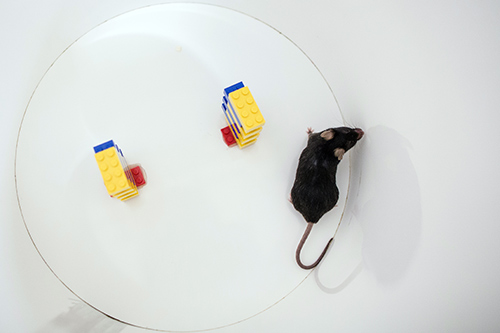What is 'research involving animals'?
There are many misconceptions about what animal research involves. Here we explain the real facts.

Why carry out research involving animals?
Life-enhancing medical advances have followed research on chemicals, cells, animals and the human body. Research studies look at new ways to understand diseases, and the carefully regulated use of animals is a key part of this. Scientists first identify a 'target' in the body (often a protein) where a new medicine should work. They then study the target in cells, tissues, animals and human samples.
Does animal research just include the testing of medical treatments?
No. Animal research is undertaken to either understand basic biology, or perform research for the benefit of humans or animals.
Is it just universities that carry out research involving animals?
No. A range of organisations carry out a wide breadth of research involving animals, including pharmaceutical and biotechnology companies, universities, charities, research institutes, hospitals and government. Identifying new medicines is just one element of this research. For instance, conservation work that protects and preserves existing populations of animals is another major area of research.
Common misconceptions about animal research
Humans and other animals clearly have similarities and differences.
Sometimes we look to the similarities to teach us about how biology works, such as studying how genes function, or by creating drugs which can be used for humans and other animals.
Sometimes it is the differences that scientists are looking for. Human volunteers cannot tell us anything about differences between species.
Animals cannot and should not be used unnecessarily in research.
In the UK, it is illegal to use an animal if there is an alternative way to do the research. There are many non-animal research methods and these are used wherever possible, but in some cases it is still necessary to use a whole living being.
The ‘3 Rs’ – replacement, refinement and reduction – represent the spirit of the law governing the use of animals in research. Find out more about the '3 Rs'.
Doctors and governments decide whether to approve drugs, mainly on the basis of clinical trials, which are carried out on humans. Neither research involving animals, nor any other regime, can fully predict how real patients will respond in trials.
It is true to say these very rigorous tests in humans weed out the 92% of experimental drugs not good enough to become medicines. But the main aim of research involving animals is to choose the best and safest molecules to be trialled in humans, out of the thousands of new molecules discovered in labs every year.
All drugs are tested on thousands of humans after being tested on animals.
By the time they are available in hospitals or pharmacies, we know the likely effects that these drugs will have on humans. These are comprehensively listed in the booklet that comes with all medicines.
By law, drugs are tested in two species of animal before being given to human volunteers. These animal tests predict toxic effects in humans between 70% and 95% of the time.
There have been no deaths in human clinical trials in the UK for over 30 years, because animals are effective at weeding out dangerous drugs and dangerous doses.
Much modern research couldn’t have been done even 10 years ago. The nature of animal research has changed over time such that modern researchers are now looking at sub-microscopic processes, which were completely unknown to previous generations.
Most animal research is actually about discovering how basic biology works, not testing drugs.
Based on this knowledge, other scientists might create drugs, treatments, or health advice for humans and other animals.
Research animals are mainly mice, followed by rats and fish to a lesser extent.
Fewer than one in 500 research animals are dogs, cats or primates.
Using animals is one of the most expensive ways of conducting research.
Research animals are specially bred and kept free from unwanted infections, which makes their upbringing much more costly than animals raised to be farmed, or pets.
In the UK it is illegal to test cosmetics or their ingredients on animals, or to import cosmetics that have been tested in this way.
It has been illegal to test cosmetics on animals since 1998.
